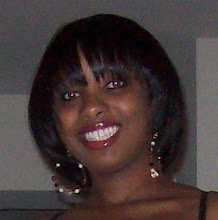I was always a fan of hip hop and always gave particular attention to the women in the industry. When I was 7, I named my first parakeet, Spinderella. I mimicked Salt-N-Pepa, but always thought that the deejay was the most unique and underrated member of a group. Little did I know then, in the earliest days of hip hop, the deejay was the superstar. As I was becoming a loyal fan of hip hop, the transition from the focus on the deejay to focusing on the emcee occurred.
I spent hours listening to MC Lyte, Roxanne Shante, Queen Latifah, Moni Love, Yo-Yo, Rage and any other woman emcee who dared to challenge and permeate the male-dominated culture. Though still marginalized within mainstream hip hop, throughout the late 1980s and the 1990s, I heard an array of women's voices attempting to articulate possibilities for a defiant black womanhood that could inspire and influence a generation combating crack, post-industrialization, HIV/AIDS, Reaganomics, the feminization of poverty, the decline of the social welfare state and the rise of the corporate welfare state, and various other social, economic, and political conditions unique to this era.
The height of this moment of what I will term "hip hop musical feminism" came with release of Lauryn Hill's first solo album, The Mis-Education of Lauryn Hill. To this very day, I can recite every rhyme, chorus, and interlude from this dynamic album. In one album, she recreated the standard for what a hip hop album should be: evocative, emotional, vulnerable, self-critical, gritty, sentimental, sonically innovative, lyrically imaginative, creative, and most importantly, a sincere reflection of the life and times the artist/we experience. I knew Lauryn Hill would be a definitive figure within hip hop after listening to The Score (The Fugees). It was either when she rhymed "And even after all my logic and my theory/I add a muthafucker/So you ignant niggas hear me" or " So while you imitatin' Al Capone/I be Nina Simone/And defecation on your microphone" that I knew Ms. Hill would be synonymous with hip hop for me.
So how do I reconcile enjoying the depth and weight of Lauryn Hill and the raunchy and sexually explicitness of Lil' Kim (pre-plastic surgery)? I don't! I appreciated this era/epoch in hip hop because of the extant variety. Foxy Brown's lyrics incited a boldness, while Queen Latifah and Moni Love made me think about what I called myself and what I allowed others to call me as well as how to think about the world from a socially responsible standpoint. Salt-N-Pepa encouraged me to think about sex and sexuality. MC Lyte provided a template for confidence that so many black girls lack. The list goes on and on, but each of these emcees influenced my understanding of the possibilities for black women in my generation as well as how I could address the pressing issues confronting my generation.
So why this brief recollection of my love of women emcees in hip hop? I can't find the love now. It's not on most of the albums I hear. It's formulaic these days, no variety and limited lyrical or creative prowess. Exceptions such as Jean Grae exist, but I remember hearing at least 3 or 4 different female voices on a regular basis in an earlier moment in hip hop history. I know that hip hop, as a musical genre, is on its decline, if not already dead as Nas eloquently stated. I'm not lamenting the loss so much because I know that black and brown music must evolve and shift and reinvent Soul every few decades. But I just can't stand seeing less-than-mediocre emcees, like most of those vying for the Ms. Rap Supreme title on VH-1's newest reality contest show, attempting to claim a stake within a modern tradition that helped me locate my feminist self. Call me a hip hop elitist or a nostalgic hater, but I just want my last memories of hip hop to include women's voices that speak to black girls the way Hill, Latifah, Lyte, and even Trina (her earliest work), to an extent, spoke to me.
Perhaps it will not be through hip-hop, but through whatever youth, musical culture that evolves. Wherever it emerges, women artists, we need you, WE NEED YOU more than ever.
a diva feminist



3 comments:
This is a well written blog from a feminist standpoint but me being the caveman that I am...I have to say that hip hop used to be a synonym of the times we live in...now Soulja boy rules the airwaves...hope it is not for too long
I truly enjoyed your thoughts as a fellow Hip Hop Feminista. It's really time for a new wave of women to step up and take more ownership not only as an MC, but producers, executives, media, and academia.
This new generation of women in Hip Hop need to know that their is a diverse feminine space within Hip Hop and that they don't have to limit themselves a video chick or an Mc with no substance. The New Girl Order wont be televised until we run that bitch!!!
Keep the dialog going, cuz ladies love Hip Hop too ;)
Eventhough I am male, I enjoyed reading the opinion from a feminist perspective. Since hip hop is enjoyed by males and females, there is no reason why woman should not have representation in the business. Quality female artists have arrived in the past as well as in the present and it is important that women have artists they can relate too. Articles such as this can help further influence the advancement as well as motivate fellow female artists and listeners.
Post a Comment